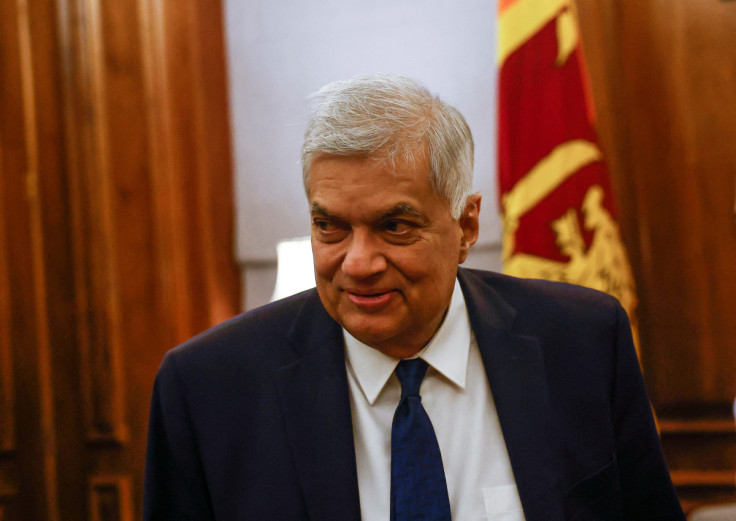Sri Lanka Fails To Reach Agreement With IMF To Unlock Next Installment Of Bailout Package

KEY POINTS
- After a two-week visit to Sri Lanka, an IMF team decided to hold the next tranche of funds
- Signs of progress are evident but Sri Lanka's economic recovery "is not yet assured," the IMF officials said
- The Washington-based lender wants to see crisis-hit Sri Lanka collect more taxes from residents
The International Monetary Fund (IMF) will not immediately release the next tranche of funds to Sri Lanka under a $2.9 billion lending program created to lift the country out of its economic crisis.
After a two-week visit to Sri Lanka, an IMF team said the South Asian country failed to make enough progress in boosting tax collection and other economic reforms. Despite encouraging signs of improvement, Sri Lanka's recovery is "not yet assured" after the first review of its $2.9 billion bailout.
Consequently, the country failed to attain the "staff-level agreement" required for the next stage of its bailout from the IMF that was due at the end of this month.
"The people of Sri Lanka have shown remarkable resilience in the face of enormous challenges. Sri Lanka has made commendable progress in implementing difficult but much-needed reforms. These efforts are bearing fruit as the economy is showing tentative signs of stabilization," said Peter Breuer and Katsiaryna Svirydzenka, who led the IMF team that visited Colombo from Sept. 14 to 27.
"Despite early signs of stabilization, full economic recovery is not yet assured. Growth momentum remains subdued, with real GDP in the second quarter contracting by 3.1% on a year-on-year basis and high-frequency economic indicators continuing to provide mixed signals. Reserve accumulation has slowed in recent months," they added in a statement.
The IMF released an initial $330 million in funding for Sri Lanka shortly after agreeing to a $2.9 billion bailout package in March.
The delay in the second installment comes as the debt-stricken country attempts to recover from the worst economic crisis in its history.
The IMF wants Colombo to further modify its tax policies and collect higher taxes from residents.
"To increase revenues and signal better governance, it is important to strengthen tax administration, remove tax exemptions and actively eliminate tax evasion," Breuer and Svirydzenka said.
Breuer noted that tax collection is a "concern" in Sri Lanka and an important pillar of the IMF program. Adequate tax collection is required to help the government sustain its essential expenditures and continue providing important services education, health, infrastructure, support for the poor and vulnerable, he explained.
In Sri Lanka, "expenditures are of the order of 19 or so percent of GDP. Revenue is in the order of 9% of GDP or so, and that gap needs to be filled," Breuer said at a media briefing.
Tax collection in Sri Lanka, along with other misfired policies, snowballed to create the country's massive crisis. Deep tax cuts were initiated in Sri Lanka in 2019 by former President Gotabaya Rajapaksa to meet election promises. This caused the nation's tax-to-GDP ratio to plunge to about 8% – one of the lowest in the world – and left the government strapped for cash.
Sri Lanka succumbed to its worst economic crisis last year, leading to massive protests that saw the ouster of Rajapaksa.
When Rajapaksa's successor, Ranil Wickremesinghe, became president in May 2022, he raised some taxes and removed energy subsidies. However, the IMF believes the steps taken by the Wickremesinghe government are not adequate to meet the debt targets.
"The team will continue its discussions in the context of the First Review with the goal of reaching a staff-level agreement in the near term. We reaffirm our commitment to support Sri Lanka at this difficult time," Breuer and Svirydzenka said.
© Copyright IBTimes 2024. All rights reserved.






















